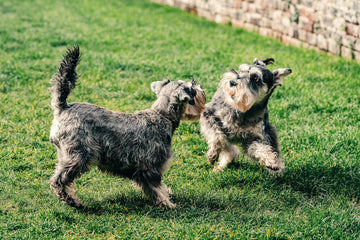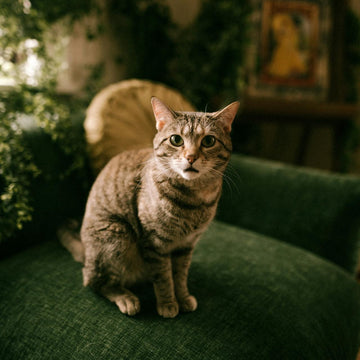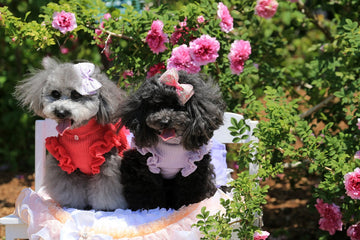Depression can be a recurring or long-term condition. Although it can interfere with daily functioning, there are ways to cope positively. For example, the right pet can be a great comfort when you're experiencing depression. We have selected six best small pets for depression, each with pros and cons.
Why Choose Small Pets for Depression?
Having pets is extremely rewarding for a variety of people. Studies have revealed that pet owners were found to be 41% less depressed than non-pet owners. Those with depression can get the most benefits out of doing so and creating a comfortable refuge in their home environment.
Small pets can be great for petting and handling. They also create less mess and demand for food than larger pets and can be homed in almost any environment without causing much damage. They should not need more than a couple of hours of care and attention each day once they reach adulthood.
When choosing the right pet, you'll want to consider the pet's personality, energy level, and need for play and attention. You can dote on one or choose to have a few. We have selected six best small pets for depression, each with pros and cons.
6 Best Small Pets for Depression
1. Dogs

Dogs are one of the best small pets for depression. They are known as man's best friend because they're empathetic, affectionate, and sometimes quite protective. They make great pets for people with depression because they're joyful and make them go outside to walk them.
Breeds like Chihuahuas, Poodles, Corgis, Pugs, Miniature Schnauzers, Jack Russell Terriers, and Yorkshire Terriers have different energy levels from hyper to easygoing, and can be pretty brave considering their size. They can also be endearing and clownish and be interested in learning games and tricks.
If you get a mix from a shelter, the dog will have qualities from each breed. Also, specific breeds may have common health issues, especially with age, or certain conditions that require extra care.
Budget and Care
Most small breeds cost about $50 a month. For a year's worth of care including food, treats, crate, bed, toys, leashes and collars, preventive medications and supplements, routine vet visits, and vaccinations, it costs $700-2,500.
There are a variety of diet options for dogs available, from kibble to frozen and homemade raw. You can also choose to foster dogs, which means to care for them until they find their forever homes.
2. Cats
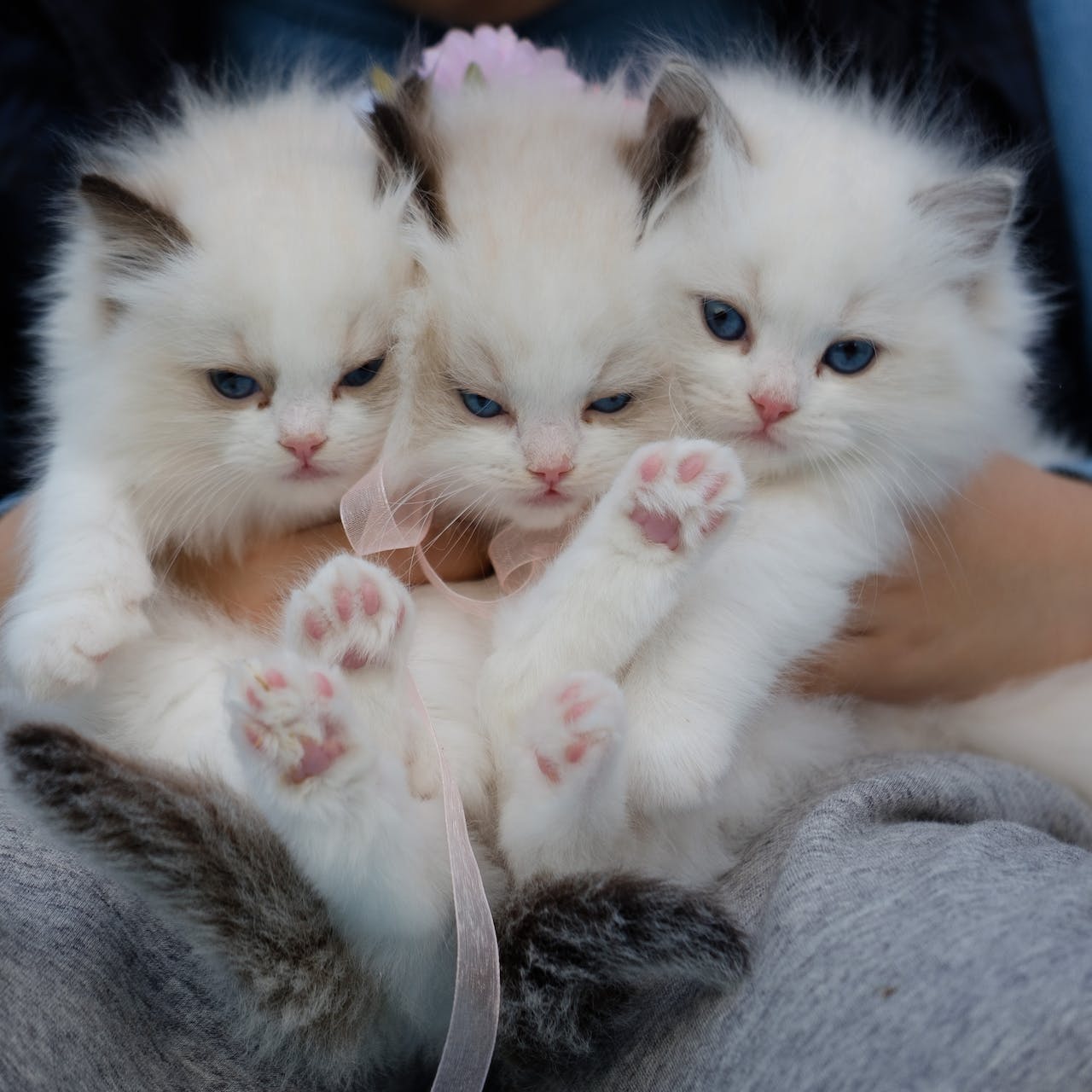
Cats are another empathetic and affectionate pet, but you'll want to look at small breeds with short fur. They will be more low-maintenance as far as everyday or regular care goes.
Generally, cats have unique ways of getting attention and affection and can be clingy or independent.
A Siamese cat is a very chatty breed who will accompany you to the shower, and the Maine Coon likes water. If you prefer a more freedom-loving cat, the domestic shorthair, oftentimes in the form of a mixed stray, is always plentiful.
Pure breeds are known for having specific personality and lifestyle traits, such as being needier or needing more brushing.
Budget and Care
You can expect to pay about $50 a month for a cat, $30-300 on average for the lower and higher ends. The average yearly cost of owning a cat is $400-3,000. Like dogs, cats have several diet options but are obligate carnivores, not omnivores.
3. Rodents

When you consider rodents as a separate category of pets, you will understand the diversity in this animal category that's also one of the lower-cost ones.
There's the gerbil, hamster, rat, mouse, guinea pig, and chinchilla, each different and adorable in their own way. Most should be kept in pairs.
The gerbil is clean, cute, and doesn't get very stinky. Guinea pigs do better as two, while hamsters do well on their own. People who are on a budget and don't want to handle their pet much should consider a mouse, and those who want a clean, more social, and active pet would do best with a rat. Chinchillas are cute, quiet, and clean, and have a low-maintenance diet.
Budget and Care
The cost of your rodent can be anywhere from $300 to $800 a year. Consider also the necessary space for your rodent, which is larger than what is normally sold at pet stores. However, you can also allow your pet to roam freely regularly, under supervision.
4. Rabbits

You've probably seen children with a rabbit as a first pet, and that's because they're cuddly, easy to care for, and get along well with other pets.
The English rabbit is placid and like other rabbits, has a calming effect on people who are depressed or experiencing a difficult time. The dwarf rabbit is another breed that is great for emotional support.
Budget and Care
Owning a rabbit costs $100 a month and between $600 and $1,000 a year. Like rodents, which rabbits used to be thought of, they do better in pairs, especially if you prefer more solitude.
5. Birds
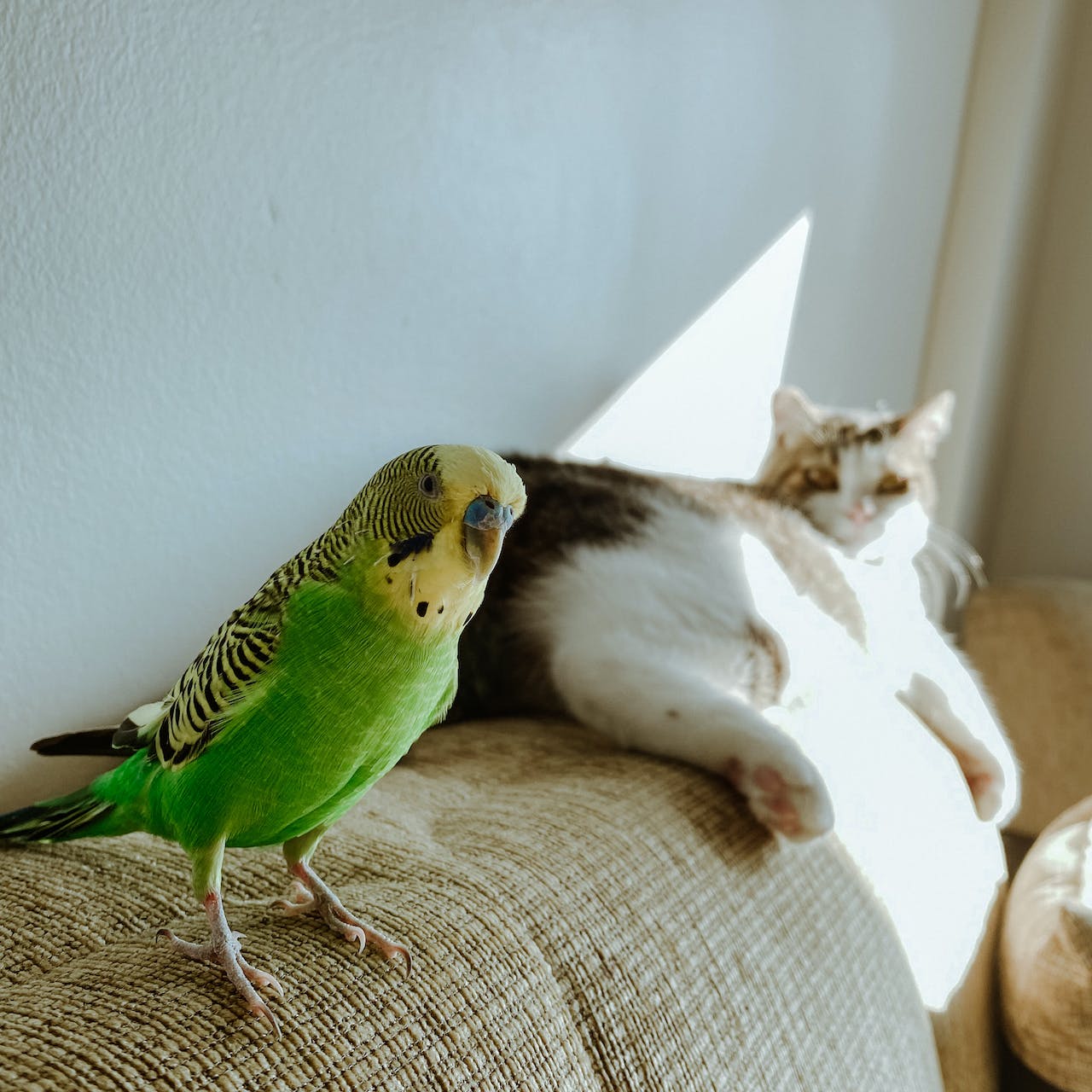
Birds are another category of small pet that gives you the option of handling it regularly, a little, or not at all. Like with many other pets, you must decide early on whether you want to handle it and how much, to start socializing it with you.
All birds create some level of noise, so it's important to consider the sounds that come from each species. Finches will beep loudly in the morning, while parakeets will whistle and chirp. Cockatiels can learn to sing and talk, and canaries are fine to sing without being handled. Lovebirds must be in pairs. All love baths and do well with free-flying in restricted rooms.
If you purchase an older bird, you must almost always accept their personality as they are. Only people who are experienced with training birds can properly deal with those who have serious trust issues from being isolated or neglected.
Budget and Care
The cost on the lower end can be $200 a year or $10-$40 a month depending on the type and quantity you buy.
6. Lizards

Lizards don't get enough attention for being a great pet option. Despite their initial setup costs, they don't need much handling, although they do need a careful eye to watch out for any health issues with temperature, lighting, etc.
The bearded dragon is popular for its look, its desert-like environment, ease of care, curiosity, friendliness, and being fun to watch.
Budget and Care
The most important factors in initial cost are color and morph. It can cost up to $100 a month to take care of a bearded dragon, with $80 on insects alone.
Final Thoughts on Best Small Pets for Depression
The right small pet can be a great comfort when you're experiencing depression. They can do well in any space, but size alone is not the only factor. They must be specifically helpful for depression and be relatively low-maintenance concerning spending, care, or attention. We strongly recommend the 6 best small pets for depression we listed above.
No matter which type you choose, the initial purchase and care setup costs will often total in the hundreds. That makes the first year costs drastically different from what you'd normally be paying every year to take care of your pet, and you can also save money with insurance.

